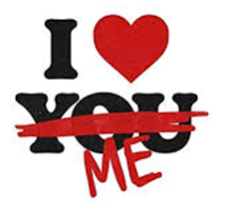Have you lost your job, a home, an important relationship through other people’s choices or all three at once. If you have you may feel as if you have lost a part of your identity, your place in the world. It also may feel like a sense of powerlessness because the choice was imposed.
The level of grief that will be experienced will depend on your emotional attachment to your job, your relationship, or your home.
You may say well this is obvious. Everyone who lives life will come across such obstacles. This of course is correct.
What has changed however is the amount of people who are losing “their place in society at the same time. For example:
- According to Ray Morgan research in October 2023 a massive 3.12 million Australians were unemployed or underemployed (20.1% of the workforce). This is the highest figure for three years and this year this number is predicted to increase.
- The divorce rate in Australia in 2021 is the highest since divorces were recorded in 1976. In Australia according to Hugh MacKay, a social demographer, almost 40% of women live on their own over 60. This is unprecedented.
What is significant is that we can disassociate ourselves from the situation much easier than ever before. We can send a text to fire someone, even end a relationship or use a killer drone from thousands of kilometres away to destroy the homes of people with unknown faces.
- By the end of 2023 117.3 million people globally were forcibly displaced from their homes. This is the highest number in recorded history.
The amount of people that are losing their sense of place or some of the younger generations who are struggling to find their place is contributing to the mental health crisis including the epidemic of loneliness.
- According to recent research one-third of Australians feel lonely some, or all of the time, which is up from one in four people feeling lonely prior to the COVID-19 pandemic.
One contributing factor is that as a society we are losing our ability to empathise.
- Children in the last decade have reduced their ability to empathise by 9% on the past generation. Experts suggest that 1 in 6 people could be defined with a narcissistic personality in 2024.
- When narcissism and narcissistic traits are on the incline, empathy is on the decline. Some experts are defining it as a “modern epidemic partly because the past few decades have witnessed a societal shift from a commitment to the collective to a focus on the individual or the self. It’s all about me not we.
The data may be challenged but in essence we only need to observe our own lives and the lives of others to understand the impact of lack of empathy. Lack of empathy can create cold dispassionate decisions that destroy the lives of others and our own humanity.
Empathy can help us manage difficult decisions better, whether it is helping someone move on from their job, leave a relationship, or decide the need to bomb other nations homes.
When I was the Director of HR developing the skills of empathy was a cornerstone of our leadership program and I personally trained the modules to role model its importance. Unfortunately, this focus has significantly declined as we prioritise what seems more pressing like technological issues.
- In America one of the number one HR priorities is maintaining civility within their organisations.
The difficulty is how can we keep so many balls in the air? How do we develop the skills at the speed required? The answer is not simple however there has to be focus and priorities on education and training at every level.
In my view Schools need to help train children and guide parents. Governments need to review their policies to ensure that the students wanting to do humanities are not financially penalised inf favour of technology courses. Organisations need to re-engage in leadership programs that have a dual focus on High Tech and High Humanities.
In my view people in power need to do act quickly as there is no real time to waste. The good news is it is a skill that can be taught and is becoming more appreciated as the scale of societal issues escalate.

